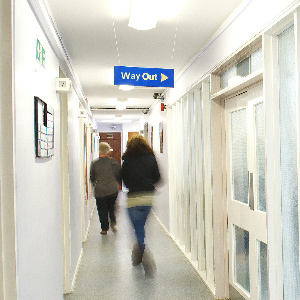GPs fear new hospital discharge guidance will lead to workload dump

NHS England, RCGP and the BMA have come under fire from GPs over a new jointly produced guide advising on how patients should be discharged from hospital.
Grassroots GPs raised fears that the document, published earlier this week, could lead to hospitals expecting practices to follow up all tests, but the GPC argued that the document was intended to have the opposite effect.
One GP tweeted that the guidance ‘would seem to contradict GMC Good Medical Practice and BMA advice’ while another said ’why produce a document encouraging more dumping/ directing of work into primary care?’
NHS England has today amended one point in the guidance following criticism, but GPs Pulse has spoken to said the risk was not averted, because the document remained too open to interpretation.
The point had said that:
- ‘Where a consultant delegates responsibility for any tasks around the communication of diagnostic test results to general practitioners, they should ensure clinicians given the task understand and fulfil that responsibility’.
But this was changed to say that:
- ’Where a consultant delegates responsibility to another team member for any tasks around the communication of diagnostic test results to general practitioners, they should ensure that person understands and fulfils the responsibility’.
But this was not the only concern raised by GPs.
The document also says that ‘every test result received by a GP practice for a patient should be reviewed and where necessary acted on by a responsible clinician even if this clinician did not order the test’, which some argued contradicted existing BMA guidance which says it is the clinician ordering a test who has to follow up on it.
Dr Hussain Gandhi, Chair of RCGP Vale of Trent, said: ’As a working GP my interpretation of [this principle] is still that NHS England is instructing that GPs will face responsibility of investigations they have not requested. This is against current BMA and GMC guidance and puts patients at risk of duplicate management and wasting vital NHS resources.
‘It is the guiding principles and the organisational thinking of NHS England that needs changing not just the odd word.’
Dr John Cosgrove, an RCGP council member and GP in Birmingham said: ’I am concerned that [the standards] will result in GPs almost routinely being expected to follow up results of tests requested by secondary care, who may cite extraordinary pressure – which if NHS demand and resource pressures continue may well become routine.’
But GPC clinical and prescribing subcommittee chair Dr Andrew Green, who advised on the standards, said that there was ‘never any intention from NHS England that this should facilitate delegating responsibility to GPs’, pointing to a principle in the document which say that ’the clinician who orders the test is responsible for reviewing, acting and communicating the result and actions taken to the GP’.
He said: ‘I understand concerns have been raised about “dumping” of results on GPs, relying on GPs’ duty of care to their patients, however these concerns are unfounded, as hospitals behaving in this way would be clearly in breach of the first principle.
‘This document should provide LMCs and commissioners with the tool they need to address this should it happen.’
However, Dr Zoe Norris, from the grassroots action group GP Survival said she ‘was not madly reassured’ by the revised document.
Dr Norris said: ‘It leaves room for ambiguity – it has taken GPs this long to be firm and realise actually we shouldn’t be accepting this workload because we’re too pressured, we don’t want to now go backwards because there is confusion over the wording, it seems ridiculous.’
RCGP chair Dr Maureen Baker said that the document had ’understandably been causing consternation amongst our members’.
She said the RCGP ‘contacted NHS England as soon as the issue came to light to raise our concerns’.
Dr Baker said: ’As a result, we understand that an amendment is being made to remove the suggestion that consultants can delegate responsibility to GPs (Standard 5).
‘We will highlight to NHS England any other points that require clarification – and we will be working with the Academy of Medical Royal Colleges to make sure that misunderstandings like this do not happen in future.’
NHS England said that ‘the standard has already been amended in response to the concerns raised’.
What does existing guidance say?
BMA guidance on ‘receiving and viewing results ordered by another clinician’ state that ‘until an explicit code of practice is agreed, clinicians should assume that the ordering clinician is responsible for receiving and acting upon results and should not assume that others who can view the result will take action’.
Meanwhile the GPC’s recent ‘Quality first’ guidance offers GPs templates on how to reject requests ‘to chase/act upon the results of investigations requested by hospital (this is the responsibility of the hospital doctor)’.










